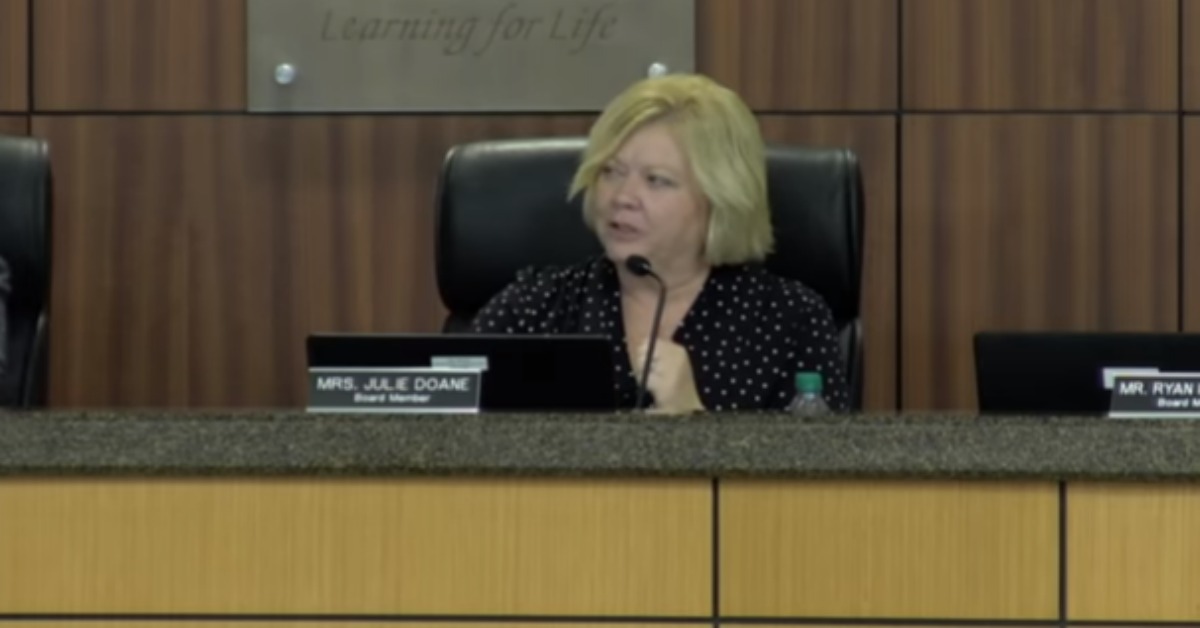A suburban Kansas City, Missouri, school board president apologized after she equated having blonde hair to having brown skin during a meeting.
Lee’s Summit school board president Julie Doane made the flub on Thursday during a discussion about racial equity, reports The Associated Press. A consultant was explaining racial inequality to the board and brought up how he doesn’t have to worry about the police pulling him over because he’s white. Doane refuted his argument by bringing up her hair color.
“Honey I’m blonde, I do,” she replied.
The discussion ended with the board voting against allocating $97K for racial equity training for school staff. In their next vote, the board voted in favor of spending $650K on a literacy program, according to The Kansas City Star. The decision upset Dennis Carpenter, the district’s first Black superintendent. He threatened to quit so they could “find a leader you can trust.” This was his second attempt to institute racial equity training in the district. He previously pitched a $7K program.
“Every piece that I’ve put forward in this district to try and ensure equity, it was met with opposition,” Carpenter said during the meeting. “If you don’t believe that of all inequities in the district, the greatest one isn’t racial, I don’t know what rock you’re living under. … We’ve got work to do.”
Carpenter’s tenure in the predominately white and affluent suburb has been met with contention by residents who nicknamed him the “race doctor” and told him he’s focuses on white privilege too much.
On Monday, Doane apologized for the insensitive remark in a newsletter typically used to give a recap of the meetings.
I am impressed with @LSR7 school board president Julie Doane. After reflecting on some *ahem* less-than-sensitive comments last week, it seems she has done some soul-searching and growth. Hoping this growth leads to action in the district and Lee's Summit community. #ClearTheAir
pic.twitter.com/wuyunoi14P— Joe Milliano (@MrJoeMilliano) May 23, 2019
“I’m sorry for the insensitive manner in which they were made,” Doane wrote. “I look forward to learning more about how we can all work together moving forward in this conversation.”

